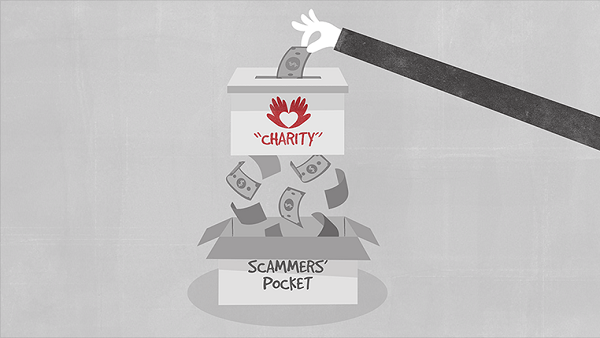
Giving to a nonprofit is one of the best ways to support a cause that you personally care about and help others in need. However, not all nonprofits are created equal.
While there are plenty that are dedicated to good causes that affect the world for the better, there are others who just don't have as much of a positive impact. Or worse, are outright scams.
How to Research?
Before we get into what to research about a particular non-profit, let's talk about how to actually find the information.
One of the top resources I use when researching charities and non-profits is CharityNavigator.org. This is a large, neutral rating organization that has high standards for their charities. Their methodology is laid out clearly, with the big two scores being "Financial" and "Accountability & Transparency".
Charity Watch is another non-profit watchdog you should look into before donating your hard-earned money. These two organizations scrutinize charities on where their money and resources go and how effective they are at supporting their cause.
However, this is not where you should stop in your research. The two watchdogs above, for example, give the charity Susan G. Komen - a breast cancer research foundation - a 3/4 stars and "C+" rating, respectively, based on their methodologies. Semi-respectable scores.
As some of us know, however, this charity has been under scrutiny for fraudulent practices, "pinkwashing", paying their CEO an abnormally high salary of $684,000 per year, and generally being all-around jerks.

Before donating, make sure to also search around on your favorite search engines for the name of your charity plus the words "scam", and "fraud". You'll quickly find out if your desired organization is as good as they seem to be, and if they employ any common charity scams.
I would also read these articles on fraud.org and the FTC's website on charity fraud and how to spot and avoid it.
So, before you donate, you need to know which ones are worth your time and money. This is what to look for when researching nonprofits to support.
Thoughtful
The Bridgespan Group recommends, “any worthwhile nonprofit is one that cares about issues that actually affect people. It's not difficult to find out what issues people care about. Get in touch with your local community leaders and see what needs people want to have addressed the most.” Then, find nonprofits that will be able to provide support.
A specific focus for a nonprofit can help you feel more trust in donating to it. While researching nonprofits, look at the concrete work that they have done and do your own research on if it really helped or not. Research what their work actually does, and where the money goes (if applicable).
Sustainable
Nonprofits need to have sustainable practices. If they're only thinking about right now, it could spell doom for their nonprofit in the future. doTERRA explains, “a good nonprofit organization has an ongoing relationship with the communities it serves. They should work to ensure the longevity and ongoing success of the projects, the people, and communities they benefit.” The right nonprofit sees their work as a continuous process, and when one problem is solved, they look for the next one to conquer. They might not be able to solve every issue, but they can still make a profound difference.
Do your research into the practices of nonprofits. See if the work they do is actually helpful, or if it’s only a little helpful for the communities receiving the help and very helpful for those who are donating. Remember that not all nonprofits or charity organizations are created equal and that if an organization doesn’t actively and continually contribute to the wellbeing of those they serve, they might not be worth donating to or volunteering for.

Impactful
Nonprofits might not be able to solve problems overnight, but it should be apparent that they're working towards solutions. They should be clearly striving to make a difference in the lives of the community they're helping. Joan Garry explains, “if you research a nonprofit and find that the vast majority of their revenue goes to paying their board of directors or covering the marketing budget, you have a good reason to look elsewhere.
Being a nonprofit alone doesn't absolve them of scrutiny.” This isn't a matter of being judgmental. It's about showing that you want to ensure they actually care about their causes. Read news articles from a variety of unbiased sources talking about the nonprofit so that you get a more well-rounded image of the organization and their true impact.
By properly researching nonprofits, you can send a message as well as a donation. You can tell nonprofits that you will be willing to give as long as they're willing to do the same. With these tips, you can be as informed as possible when it comes to finding the right nonprofit.
